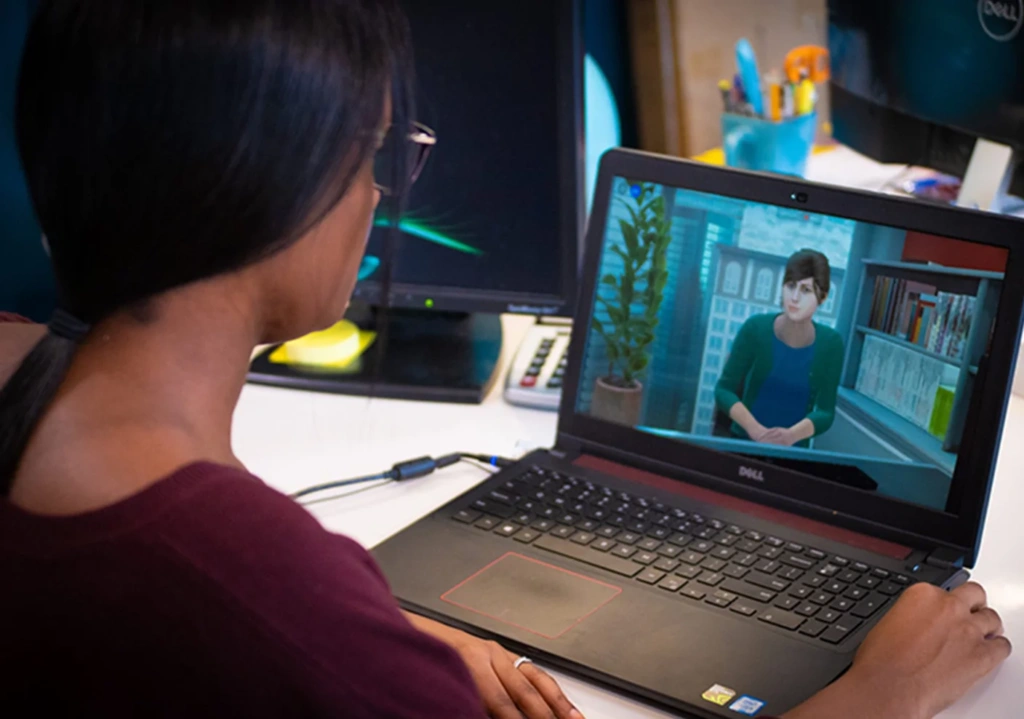In today’s fast-paced business environment, Chief Learning Officers (CLOs) face an unprecedented dual challenge: ensuring their workforce’s technical skills evolve rapidly enough to keep pace with technological advancements while simultaneously developing the critical skills of emotional intelligence (or generally referred to as EQ). As innovations in artificial intelligence, automation, and digital transformation reshape industries at breakneck speed, the pressure is on CLOs to deliver results quickly and make a tangible impact on the bottom line. However, this technological revolution has also highlighted the irreplaceable value of human emotional intelligence in the workplace.
The traditional approach of long-term training programs and gradual skill development is no longer sufficient. Businesses need employees who can not only adapt and acquire new technical competencies at a pace that matches or exceeds the rate of technological change but also possess the emotional intelligence to navigate complex human interactions, lead teams effectively, and drive innovation through collaboration. This urgency puts CLOs in a critical position to drive organizational success on multiple fronts.
This post explores four key strategies CLOs can employ to accelerate workplace emotional intelligence, delivering measurable business impact in shortened timeframes. By implementing these strategies, learning leaders can create a more resilient, adaptable, and high-performing workforce capable of thriving in an era where both technological expertise and interpersonal effectiveness are crucial differentiators.
Embrace Adaptive Learning Technologies
One of the most powerful tools in a CLO’s arsenal is adaptive learning technology. These AI-driven platforms can personalize learning experiences for each employee, focusing on areas where they need the most improvement and adapting in real-time to their progress.
Adaptive learning platforms can be leveraged to develop workplace emotional intelligence by:
- Incorporating scenarios that test and improve empathy, self-awareness, and social skills.
- Providing personalized feedback on emotional responses to simulated workplace situations.
- Adapting content based on an individual’s EQ strengths and weaknesses, ensuring targeted development.
Impact on the bottom line: By tailoring learning experiences, employees can acquire critical skills more efficiently, reducing time-to-competency and increasing productivity. Organizations using Mursion have reported skill acquisition and behavior change in as little as 90 minutes.
Foster a Culture of Continuous Learning
To keep pace with technological change, learning can’t be confined to formal training sessions. CLOs must cultivate an environment where continuous learning can happen in the flow of work.
A culture of continuous learning naturally supports workplace emotional intelligence development by:
- Encouraging self-reflection and self-awareness through frequent and regular feedback loops.
- Promoting empathy and social awareness through mentoring or coaching interactions.
- Recognizing and rewarding emotional intelligence growth.
Impact on the bottom line: A culture of continuous learning leads to increased innovation, improved problem-solving, and greater adaptability to market changes. Companies with strong learning cultures are 52% more productive and 17% more profitable than their peers overall, and those organizations that have used Mursion coaching report that 73% of participants improve their ability to influence their teams towards organizational goals.
Forge Strategic Partnerships with Companies that Are Leaders in the Space
To stay ahead of the curve, CLOs can look beyond internal resources and forge partnerships that give their organizations access to cutting-edge knowledge and skills. While these partnerships may seem technically and skill-oriented, the opportunity for collaborating on workplace emotional intelligence also exists. Learning leaders can explore:
- Partner with technology vendors to provide early access to new tools and platforms, along with specialized training for your workforce.
- Establish relationships with universities and technical colleges to co-develop curricula that align with your organization’s future skill needs.
- Create apprenticeship or internship programs that bring fresh talent and perspectives into your organization.
Impact on the bottom line: Strategic partnerships can reduce the cost and time associated with developing in-house training programs. They also position your organization as an employer of choice for top talent. Companies with strong educational partnerships report 30% lower recruitment costs and 20% higher retention rates for critical roles.
Measuring Success and Demonstrating ROI
To truly make an impact on the bottom line, CLOs must be able to measure the effectiveness of their initiatives and demonstrate a clear return on investment. Key performance indicators to track include:
- Time-to-competency for critical skills
- Employee productivity improvements
- Customer satisfaction scores
- Revenue generated from new product lines or services enabled by upskilled employees
- Reduced turnover rates
By consistently monitoring these metrics and tying them to learning initiatives, CLOs can build a compelling case for continued investment in rapid skill development.
Ensuring Skill Growth with Workplace Emotional Intelligence
The role of the CLO has never been more critical to organizational success. By embracing adaptive technologies, fostering a culture of continuous learning, implementing agile methodologies, and forging strategic partnerships, learning leaders can ensure their workforce’s skills and emotional intelligence evolve at the pace demanded by today’s rapidly changing business landscape.
The key to success lies in viewing skill development not as a long-term, gradual process, but as an urgent, ongoing initiative that directly impacts the bottom line. CLOs who can deliver measurable results in shortened timeframes will position themselves and their organizations for sustained success in an era of constant technological disruption.
As we move forward, the most successful organizations will be those that can learn and adapt faster than their competitors and connect with their colleagues and customers in emotionally intelligent ways. Mursion’s upskilling platform is one of the leading solutions that empowers CLOs to implement these best practices with precision and efficiency through:
- Immersive simulations, real-time feedback, and personalized coaching paths that personalize the learning experience and exceed the traditional one-size-fits-all training.
- Access to safe practice environments and regular coaching touchpoints to reinforce learning build a culture of continuous learning and help measure skill progression that motivates continuous growth.
- Research-backed simulations, microlearning courses, and coaching strategies that help CLOs stay ahead on learning innovations while managing resources.
Learn more about how Mursion can help you rapidly upskill your employee EQ by experiencing the platform for yourself.


